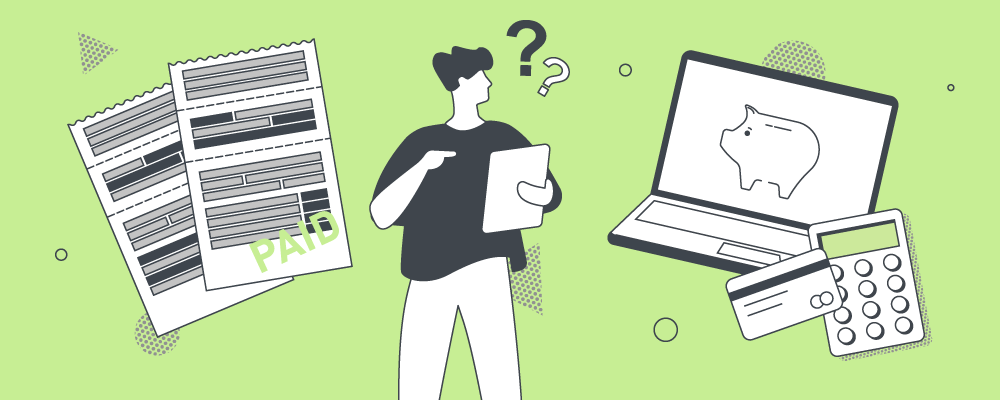
Saving for a house deposit is a challenge, but with a few practical steps you’ll soon be on the way to buying a property of your own.
From a few useful apps to helping you know your way around credit scores, here are our top tips to save for your deposit.


Find out what you spend each month
Many people don’t know exactly how much they spend each month, but it’s vital to get a handle on your finances before you can start saving. Choose a method that works for you, whether that’s grabbing a pencil and paper, making a spreadsheet or using apps such as Goodbudget or You Need a Budget (YNAB). Work out your income and outgoings for the past three months, then, once you have a realistic idea of your expenditure, you can work out how much you can feasibly save each month.
 If your financial situation leaves little room for saving, break down your expenditure into categories and allocate a budget for each, whether that’s £100 for entertainment or £300 for food. Costs can be broken down into fixed costs, which have to be paid, and variable costs, which means they could fluctuate on a month-by-month basis.
Little savings across fixed and variable costs can make a huge difference, but you should also keep track each month and hold yourself accountable if you don’t stick to your plan.
If your financial situation leaves little room for saving, break down your expenditure into categories and allocate a budget for each, whether that’s £100 for entertainment or £300 for food. Costs can be broken down into fixed costs, which have to be paid, and variable costs, which means they could fluctuate on a month-by-month basis.
Little savings across fixed and variable costs can make a huge difference, but you should also keep track each month and hold yourself accountable if you don’t stick to your plan.


 If your financial situation leaves little room for saving, break down your expenditure into categories and allocate a budget for each, whether that’s £100 for entertainment or £300 for food. Costs can be broken down into fixed costs, which have to be paid, and variable costs, which means they could fluctuate on a month-by-month basis.
Little savings across fixed and variable costs can make a huge difference, but you should also keep track each month and hold yourself accountable if you don’t stick to your plan.
If your financial situation leaves little room for saving, break down your expenditure into categories and allocate a budget for each, whether that’s £100 for entertainment or £300 for food. Costs can be broken down into fixed costs, which have to be paid, and variable costs, which means they could fluctuate on a month-by-month basis.
Little savings across fixed and variable costs can make a huge difference, but you should also keep track each month and hold yourself accountable if you don’t stick to your plan.

What Apps Can I Use?
There are lots of useful personal finance appsavailable, so do some research and find one that works for you.
From spend breakdowns to micro-investments and even a tool that drip-feeds earnings into your account, there are lots of clever apps out there that can sort out your finances and help with reaching your savings goals.


Set up a direct debit
Once you have a monthly savings figure in mind, set up a direct debit to make sure you don’t forget to set money aside each month. It’s also worth changing all direct debits to come out on the same day (such as payday), so you know exactly how much disposable income you have to play with. If you want to be really disciplined, withdraw cash at the beginning of each week and resist the urge to spend on any debit or credit cards.
Improve your credit score
The better your credit score, the more likely you will be to get a mortgage offer, so it’s worth finding out exactly what your current rating is and then taking steps to improve it.
If your score is good it will be easier to get a mortgage at a higher loan-to-value (LTV), which means you won’t need such a large deposit, making it much easier and quicker to save.



Maximise your savings
You can boost your savings by choosing an account with good returns and interest rates, so make sure you do your research. Look into cash, Help to Buy, Lifetime ISAs or high-interest accounts, and subscribe to independent websites for the very latest advice on maximising your house deposit savings. Instant and easy access bank accounts mean you can withdraw money whenever you like without charge. However, lifetime ISA customers are often charged for withdrawals – often a 25% penalty on the total amount taken out. As well as interest rates, consider if you will need to access your money while you are saving. This will dictate the type of account you opt for, as will the length of time you are saving for.
Get help from friends or family
Help from friends or family might include the lending of money to help you pay for a deposit, or it could mean helping you out by letting you move into their spare room for a while.
This isn’t always possible, however, but with the pressures of saving it’s always worth having a conversation about it and exploring all possible avenues.



Downgrade on personal items
Another way to save is to cut down on some expensive personal items stopping you from saving up as quickly as you’d like. Perhaps you don’t need two cars or could go without an expensive family holiday just for one year. Do you really need Sky or Netflix? Consider everything and, when Christmas arrives, it might be necessary for you to spend a little less than usual on presents for yourselves or other family members.Calculate what you could do without and what you could realistically save if you got rid, before adding the amount to your saving plan.
Be realistic
Last but not least, do the maths and don’t overstretch yourself when saving for a house deposit. You need to be realistic about what you can afford to save each month, and how long it will take to reach your target.
If you can’t set aside enough money to buy a house within a specific time frame, either give yourself longer or reassess how you are going to save the money you need.  This guide to saving for a mortgage was produced in collaboration with L&C, the UK’s leading fee-free mortgage experts.
Use L&C’s savings calculator to see how long it will take you to save for your mortgage.
This guide to saving for a mortgage was produced in collaboration with L&C, the UK’s leading fee-free mortgage experts.
Use L&C’s savings calculator to see how long it will take you to save for your mortgage.
 This guide to saving for a mortgage was produced in collaboration with L&C, the UK’s leading fee-free mortgage experts.
Use L&C’s savings calculator to see how long it will take you to save for your mortgage.
This guide to saving for a mortgage was produced in collaboration with L&C, the UK’s leading fee-free mortgage experts.
Use L&C’s savings calculator to see how long it will take you to save for your mortgage.

